It is not uncommon these days for people to share the spendings of a group equally. For example, for a group of five friends having lunch together, they share the bill in five equal parts. Each one contributes one fifth of the total amount.
Or for example three to four people sharing a ride back home from office.
This is so easy. Right ? Dividing the fare or food bill is easy and everyone saves some money. But this looks easy because of two reasons.
One because the amount is divided in equal parts. And second because the money involved is not so big to draw a controversy. It would be much more difficult to draw an average if one person said that he has eaten less so he should pay less.
Or for that matter one person said he weighs less so he will pay less for the cab ride.
Oh!! I was supposed to talk about York Antwerp rules, right ? Why am I even talking about sharing a ride and food bill.
Well the York-Antwerp rules are also about sharing the expenditures with certain conditions attached.
Take this example.
A hold on a bulk carrier with cargo in it catches fire. The hold is flooded with water to extinguish the fire and to avoid the fire spreading in other parts of the ship.
We have saved the ship and we have saved the cargo in other holds of the ship. What have we lost ? The cargo loaded in one hold.
Now who would pay for the cargo lost in this case ?
Both the cargo interests as well as the ship owner has saved themselves damages which could have been more. If it was up to me and you to decide, it could be almost impossible to draw a balance on who should pay how much. After all it isn’t as simple as averaging for the food bill or cab fare.
This is what York Antwerp rules aims to do. The process of averaging the contribution of each party (who benefitted) to make up one party’s loss (Sacrifice as well as expenditures) is called “general average“.
General average is based upon the principle
That which has been sacrificed for the benefit of all shall be made good by the contribution of all
So not all sacrifices and expenditure qualify to be averaged and shared by other parties.
York Antwerp rules sets the guidelines of which all sacrifices and expenditures can be included during “General Average” and which all cannot.
How General Average works ?
Let me give an example. A loaded ship is hijacked in Somalian waters and pirates demanded the ransom for release of the ship. After much of negotiations the ransom was brought down to 30,00,000 (3 Million) US dollars.
The ransom amount was delivered and the ship was released. Let us see the break up of total expenses incurred in releasing the ship.
Now who do you think will pay this huge amount ?
The principle of general average says that all the parties that benefit from this sacrifice of the ship owner should pay. But how much each one need to pay ?
Cargo owner who had small parcel on board the ship should not pay same as other cargo owners who had huge amount of cargo on board.
So the break up need to be in proportion of how much each party saved from this sacrifice.
As per general average, each party will pay the same percentage of amount that they have saved. For example of the total value saved, 60% belongs to the ship owner. So ship owner need to contribute 60% of the expenditures or amount sacrificed.
Here are the general average contributions from each party in this example.
Now in this example, I have over simplified this for the sake of understanding but in realty these calculations can be extremely complex.
Some can even argue if the ransom paid for piracy can give rise to claims under general average ? All this may not be that simple.
For example it may be that ship was taken to Somalia and then upon release ship joined its planned route after one day sailing.
In this case the ship owner’s expenses like fuel cost and ship staff’s wages etc for this period also need to be shared.
But if we do not have a pre defined set of rules, the cargo owners may refuse to share the fuel costs or crew wages. They may say that we will only share the ransom amount.
So there need to be rules which each party will agree upon before the start of voyage. These rules already exists and are known as “York Antwerp rules”.
York Antwerp rules
The first version of York Antwerp rules were issued in 1890. But it was second version of York Antwerp rules that got much of applaud. Even though the latest version of the rules were issued in 2004, most companies use 1994 version of the rules.
Recently a new version of rules were issued in 2016.
York Antwerp rules has two sections. First section has rules that are identified by the letters (Rule A, Rule B .. ). These rules give general guidelines on what can be included in the general average.
Second section has rules that are identified by numbers (Rule I, Rule II .. ). These rules give specific situations, sacrifices and expenditures that can be included in the general average.
Let is discuss few of the important rules.
Rule Paramount
While all the rules in York Antwerp rules are named either with a number or an alphabet, this one rule is named differently. This is because this rule is paramount to all the rules.
Sacrifices made by ship owners should be reasonable and they cannot over spend. For example let us say the vessel was towed even when the ship’s engine were working.
This would be considered as “not -reasonable” and this amount will not be included in the general average.
What is General average act (Rule A)
What expenditures will be shared by all parties ? When we talk about general average and York Antwerp rules, this is most important question.
If ship owner places armed guards on board, can this be considered as general average act ? Will these expenses be shared between ship owner and cargo owners ?
Rule A of the York Antwerp rules defines the limits of general average act. It says
There is a general average act, when and only when, any extraordinary sacrifice or expenditure is intentionally and reasonably made or incurred for the common safety for the purpose of preserving from peril the property involved in a common maritime adventure
So there are four essential requirements for an action to fall under General average.
1. The expenditure or sacrifice need to be extraordinary
The ship owner is bound by his duty to deliver the cargo safely at the destination. There is nothing extraordinary in any actions that a ship owner performs to fulfill this duty.
This also answers my earlier question if placing the armed guards would come under general average act. It won’t. Ship owner is placing the armed guards to fulfill his duty of delivering the goods safely.
2. The act must be intentional
If the ship ran over a wreck and to release the ship a part of ship or the wreck need to be cut away. The expenditure involved in this will not come under general average because this was not intentional.
Jettisoning part of cargo to re-float the ship or flooding the water in a hold to extinguish the fire are intentional acts.
3. The Action must be for the common safety
Let us understand the term “Common safety: with an example.
Let us say a container ship has few of the refrigerated containers. The referigeration system of the ship failed and ship had to be diverted to a nearest port for repairing it to avoid damaging this cargo.
Will the expenditures incurred by the ship owner in this case come under general average ?
No, because the action is only for saving part cargo and not for the common safety of ship owners and for other cargoes loaded on ship.
For the general average, the action has to be for the common safety.
The action of Jettisoning some cargo to avoid sinking of entire ship is for common safety.
4. There must be a peril
If the master jettison a cargo to save the ship from sinking, it is a peril. But if the master jettison the cargo because he feels that the ship is overloaded, is not a peril.
Dictionary meaning of “peril” is “Grave danger”. If there is no grave danger, general average cannot apply.
But in the context of York Antwerp rules and General average, the interpretation of grave danger can be different.
In fact that is the difference between “a ship in distress” and “a ship in peril“.
For example take a ship that has broken engine in the mid sea with calm weather. The ship is not in distress but the ship is in peril.
General average Sacrifices
The sacrifices that can be made and are included in the general average fall under three categories.
The numbered rules gives the examples of the sacrifices that can be included in the general average.
Jettison of cargo: Jettison of cargo will include in the general average if the cargo was carried as per customary trade. For example if the deck cargo was loaded on a ship that is not allowed to load on deck, sacrifice of such cargo will not include in the general average.
Extinguishing fire: General average will include the damages (to ship or the cargo) because of extinguishing fire on board.
Voluntary stranding: Damage and loss because of intentional stranding in “common safety” is allowed to be included in general average.
General Average Expenditures
Apart from the sacrifices, one party may spend lot of money in the common interest of saving the ship and the cargo. As per York Antwerp rules, these expenditures also can be included in the general average.
Some of these expenditures can be
- Salvage expenses
- Port of refuse expenses
- Wages of master and crew during the prolongation period because of port of refuse
- Fuel during the prolongation period because of port of refuse
No general average for environmental pollution (Rule C)
As per Rule C of the York Antwerp rules, the costs involved in handling environmental pollution cannot be included in the general average.
This is a logical rule as if the general average was to include the environment damage claims, it would have taken the domain of the general average too far.
It does not matter whose fault it is (Rule D)
Let us say a vessel ran aground. The vessel had to sacrifice (Jettison) some of the cargo to re-float it. As per rule D, the cargo owners cannot claim that the grounding was due to the fault of ship owners and they would not contribute to the general average.
Irrespective of the fault which led to the event (in this case grounding), all parties have to contribute to the general average.
But this will not be the case if the ship was unseaworthy. If the grounding resulted because the vessel was unseaworthy, then ship owner cannot benefit from the general average.
In spite of the rule D of the York Antwerp rule, US law does not allow the navigation fault of the ship owner to be neglected. As such most of the ship owners make sure to include “new Jason Clause” in the bill of lading and charter party agreement.
Application of York Antwerp rules and General average
In most countries these rules do not have any legal force in themselves. The York Antwerp rules and principle of general average have legal force only if these are included in the bill of lading or charter party agreement.
If you get to see an actual bill of lading, read the term, conditions and clauses on the back side. Most likely you will find a clause regarding York Antwerp and General average there.
Recovery of general average contribution
In “taxi fare” example, if one person refuse to pay his share what options one can have to recover it.
May be we can let it go as the amount will not be that big.
In the perils at sea, in most of the situations it will be ship owner who would make sacrifices and expenditure to come out of these situations.
So how can a ship owner ensure that everyone will contribute to general average amount that ship owner should get.
In the maritime law a ship owner has the lien on the cargo for the general average contribution. So ship owner will only release the goods once he receives a guarantee that he will get his dues. This guarantee can be in form of
Role of Average adjuster
Don’t go by the name. Average adjuster are not average people. They are the expert in one field of marine insurance, that is general average.
During a general average situations, usually a average adjuster is appointed by one party. The role of the average adjuster is to
- Collect all the information following a general average action
- Make a statement of general average contribution of each party
- Collect general average security from each party
- Assist in effective settlement of the general average
Irrespective of which party has appointed average adjuster, it is the duty of the average adjuster to be impartial towards general average settlement.
Association of average adjusters sets the standards for the training of average adjusters.
Conclusion
General average allows sharing of loss in an unfortunate incident. General average is a good old maritime practice. Not only for ship owners and other parties involved but also for ship’s masters.
To some extent it allows the master of the ship to be a boss and take actions what he believes is the best for that situation.
Take an example where master need to beach the ship to save it from sinking. Because of general average, master would face lesser resistance from all the parties as the loss would be shared.
In the absence of general average, condition would be different. Master may have to convince all parties that beaching is the only option.
Another example where master has to jettison some cargo to save the ship. In the absence of general average, the cargo owner might object to why his cargo was jettisoned and not the other cargo ?
York Antwerp rules and General average has something good for everyone involved with a ship and carriage of cargo.
Share this:
About Capt Rajeev Jassal
Capt. Rajeev Jassal has sailed for over 24 years mainly on crude oil, product and chemical tankers. He holds MBA in shipping & Logistics degree from London. He has done extensive research on quantitatively measuring Safety culture onboard and safety climate ashore which he believes is the most important element for safer shipping.
Search Blog
41 Comments


i am preparing for chief mates and this article is the most simplest for me to understand this.

Glad you found it useful Yashovardhan...

Dear Rajeev, excellent article. I do have one question though - what happens if the ship is not laden? Then the cost would be split between the charterer (if the ship on a TC for example) and the owner? What about when a vessel is voyage chartered and is on her ballast leg - same conditions as above with the TC apply? Thank you advance, Paul

Hi Paul.. For ballast passage there will only be one party involved. That will the owner of the ship. For example if the ship crew flood the hold to extinguish fire in a empty hold, no one other than owner is benefitted. So this will be a case of particular average and only owner would bear the costs.

On time charter fuel is being supplied by Charterer, so i believe in ballast passage he has to contribute even in absence of cargo. Correct me if i am wrong

Excellent very nicely explained

Thanks Ajay..

Please sir I need an answer on similarities and differences of Hague visit rule and York antwerp rule

Hague visby rules deals with the Bill of ladings and contract of carriage. York Antwerp rules deals with averaging the loss in case of an accident during the voyage.

thanks so much sir

thank you v much for the lovely explaination.. i would like to correct that the vessel is in distress under calm sea is not under command and not in peril unless high wind force rough weather.. as the master has to decide wheather she has to be towed or salvage.

Thank you Sir. Excellent information well presented.

Thanks, Dhadwal....

Thanks a lot...every presentation is so perfect...you are a treasure to our field.

Thank you, Anuradha...

Sinking a burning ship in order to extinguish fire can it be included in the General average?

First of let me congratulate you Sir for this excellent write up. I have a doubt , if a superintendent is flown in to assist a ship which is already grounded , Can the expenses be added to general average.

excellent article sir, can u explain who declares that it is GA in practice.Its only master or any party having interest?

First of all thank u sir for posting this in such a simple language to understand. I am preparing for mates exams, can you pls post a small description of Rotterdam rules also.

the explanation was so great ....no have word to say ..sir please if you can share on magnetic compass and corrector and tentative swing ..it will great for me doing my master

Sir, can you please post information on. Problem posed by article 13 & 14 of salvage convention towards rule 6 of york antwerp rules

Sir please write a topic on sue and labour clause. Mentioning the shares between different parties and how it is done.

what is the use of leed line and what occasion can it be apply.

Sir , why does the numbered rules takes precedence over the lettered rules ? any logical explaniation

Sir can you discuss also the hamburg rule as well as the rotterdam rule... Your explaination on huage and hague visby rule is really great and comprehendable... Only at your explainations i may understand these rule compare to my instructor.. I hope you can have these request possible soon. Thanks...

Sir, In LCL Container, if one of the consignees refuses to pay General Average for uninsured cargo. What options available to other consignees? Can we hold responsible for Freight Forwarder / Consolidator? Pls advise. Thanks ...

my question is, if a loaded vessel gets grounded due to low tide and master calls for tugs for towing. before arrival of tugs the ships get afloat because of change of tide. in this case will the tugs be paid? if yes then who will pay?

Will the GA Guarantee be returned by the Average Adjusters to the Insurance company after settlement is finalized and dues have been paid???

nice blog sir

Resourceful article. You cleared about some of my query. These days, people face many problems in families that break peace and happiness of their lives and the issues like property settlement, unhappy married life, adoption, abduction, divorce, child support etc. These problems need extra attention to be done legally, so people need to hire family lawyer. If you want more information about affordable divorce you can visit affordable divorce in Calgary

Please sir what constitute adjustment by Average Adjuster

Please could you clarify if cutting away wreck would not fall under general average category irrespective of it being charted or uncharted? Many thanks.

I appreciate the wondrous work you did for me LORD ZAKUZA by getting my ex lover back and I know people out there will need your help also. He's spells are powerful, magnificent and permanent. To get your ex back now, email: lordzakuza7 @ gmail. com

SIr, can u please explain Rule D, E , F & G also ?

Nice Blog. Sharma ji is one of the best astrologers in Toronto.
Leave Comment
More things to do on myseatime
MySeaTime Blogs
Learn the difficult concepts of sailing described in a easy and story-telling way. These detailed and well researched articles provides value reading for all ranks.

Seafarers Question Answers
Ask or answer a question on this forum. Knowledge dies if it remains in our head. Share your knowledge by writing answers to the question

MySeaTime Podcast
This podcast on the maritime matters will provide value to the listeners. Short, crisp and full of value. Stay tuned for this section.





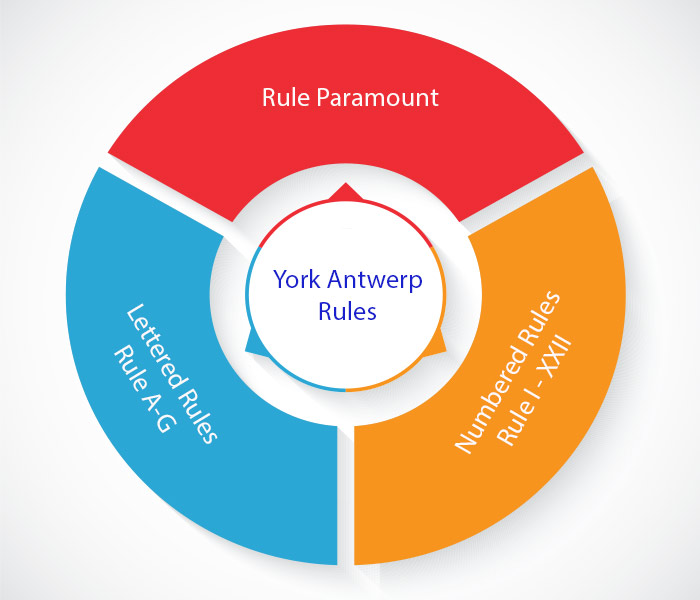
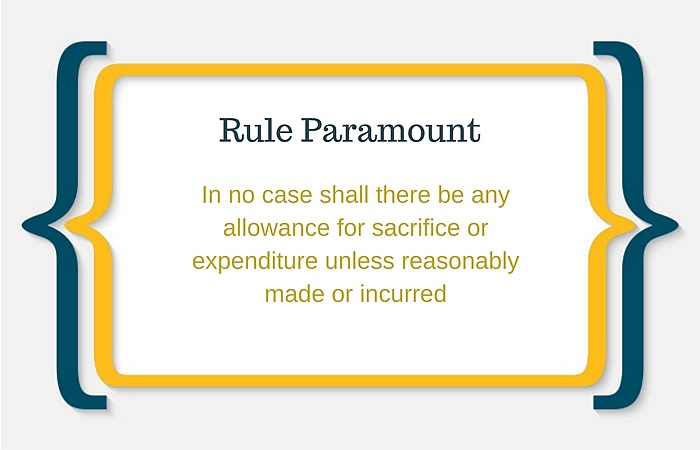
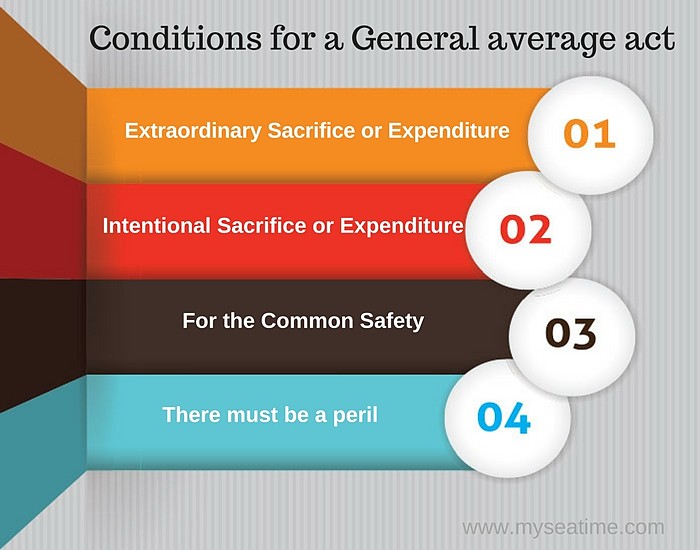

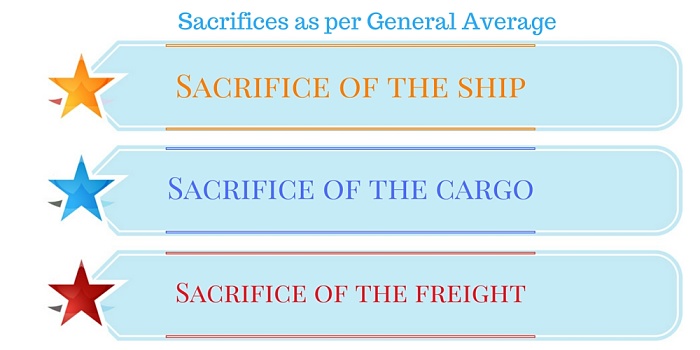


First of all ........thanks sir for posting this useful article. Needed your useful clarification on few other topics like hauge , hague visby & hamburg rules. Also if you could explain the meaning of term "scantling draught". Many thanks in advance
Ashish, I had written a post on Hague visby rules. I hope this is what you are looking for. Check that out. Scantling draft is the maximum draft at which ship can withstand all the loads safely. It can be more than the design draft of the vessel but never lesser than that.
Many thanks for providing the definition of scantling draft...as i had asked many ppl for it but no one could provide me with this answer. Further can u send me the link of the post on Hague visby rules as i cant locate it.
Thanks ...i have got it.
Sir can it be more than summer draft???
Thank you so much sir for that lovely Article, beautiful in simple words explained which i will always remember. Sir how do i get in touch with you